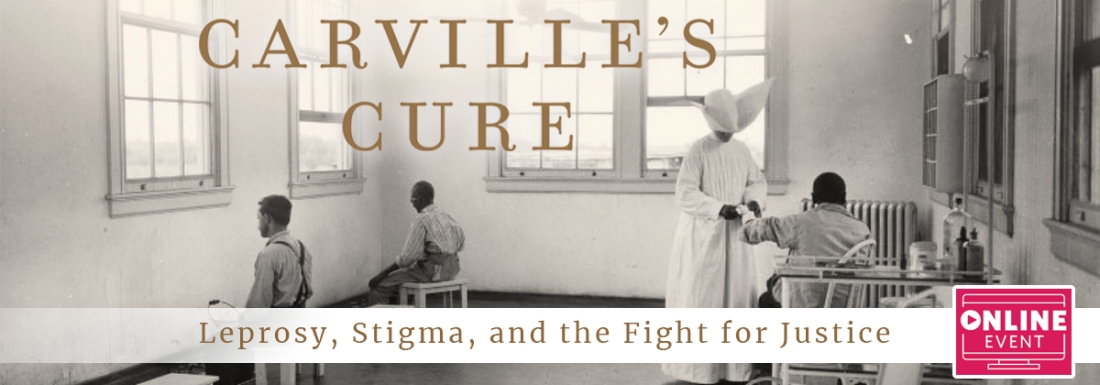All Library locations will be closed Monday, January 19 for Martin Luther King, Jr. Birthday.
For more than a century – until 1999 – an old Louisiana sugar plantation beside the Mississippi River held a painful secret. Locals knew it as Carville, the only leprosy colony in the continental United States.
Generations of patients were housed there, often against their will and until their deaths. They were deprived of voting and other basic rights. Often, they were denied contact with parents and children.
National Public Radio correspondent Pam Fessler explores their stories, the facility’s history, and society’s harsh perception of what’s known as Hansen’s disease in a discussion of her new book Carville’s Cure: Leprosy, Stigma, and the Fight for Justice.
Hansen’s is now rare in America and most countries in the world, though cases are ticking up. Fessler, whose husband’s grandfather was a patient at Carville, draws parallels to the much different and deadlier affliction of COVID-19, including the complications of misinformation and stigma. Today, she suggests, it’s those trying to stem the tide of the pandemic who are marginalized.
Fessler’s career with NPR spans more than 25 years. She’s now a correspondent on its national desk, covering poverty, philanthropy, and voting issues.
